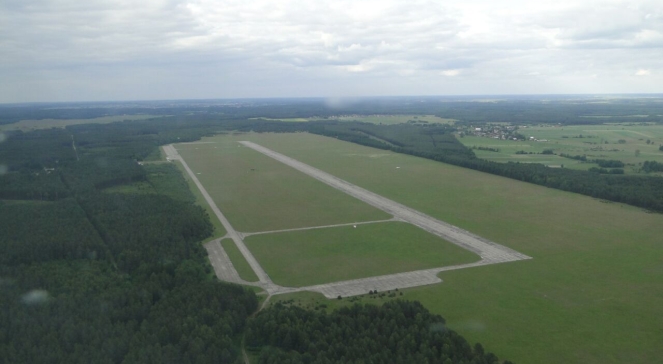
szymany airport: photo - mazuryairport.com
Zbigniew Siemiatkowski, who was the chief of Poland's intelligence services from 2002-2004, confirmed the information in a joint interview with the Gazeta Wyborcza daily and the TVP public television station.
“While in the prosecutor's office I refused to answer questions and I shall continue to do so at every stage of the proceedings, including in court,” he said.
According to Siemiatkowski, prosecutors acted on 10 January this year, but no information was released to the public.
Similar charges will be made against his deputy, Col. Andrzej Derlatka, who was directly responsible for dealing with the American intelligence service.
The charges relate to an investigation begun in 2008, regarding whether Poland hosted CIA detention centres for alleged terrorists during the early years of the so-called “War on Terrorism.”
Siemiatkowski, as head of the AW, has been accused exceeding his powers and breaching international law, with “unlawful deprivation of liberty,” and “corporal punishment” against prisoners-of-war.
A military base in Stare Kiejkuty, north eastern Poland, was allegedly used as one of the so-called CIA “black sites” between December 2002 and September 2003.
At the time of the alleged existence of the black sites, the Democratic Left Alliance party (SLD) was in power in Poland, under Prime Minister Leszek Miller.
The completion of Poland's official investigation into the affair was delayed for a second time on 1 February, with Warsaw Prosecutor Waledmar Tyl suggesting that the results may not see the light of day until August this year.
However, although the charges against Siemiatkowski were intended to remain confidential at present, the Gazeta Wyborcza daily claims that prosecutors acted after receiving full documentation from Poland's Intelligence Agency about cooperation with the CIA in the first years of the War in Terrorism.
The news that charges have been made against a high ranking Polish official is a major development in the investigation, which calls into question whether Poland was complacent with the CIA holding and torturing prisoners.
Sources have told reporters that access to a villa which was acting as the CIA 'black site' was closed to Polish officials.
“We had no access to the villa,” one source has said.
The revelations that Siemiatkowski has been charged by prosecutors come after an external hearing began at the European Parliament in Brussels yesterday, held by the Committee on Civil Liberties, Justice and Home Affairs (LIBE), about the alleged existence of black sites in Poland, Lithuania and Romania.
Poland declined to send any state representative to Brussels.
However, current president of Poland Bronislaw Komorowski said previously that he wants “to finally get to the bottom of the question of the existence of CIA prisons in Poland.”
Tuesday's revelations also indicate that former prime minister Leszek Miller may be brought in front of the State Tribunal, Poland's supreme judicial body.
Victim status
In January, Polish prosecutors gave terror suspect Abu Zubaydah “victim status” in the investigation after claims that he was a victim of extraordinary rendition and secret detention in Poland.
Zubaydah was one of 14 “high-value detainees” transferred to Guantánamo from secret CIA prisons in September 2006.
He claims he was held, and tortured for four and a half years in prisons in Thailand, Poland, Romania, Lithuania and Morocco.
Polish prosecutors have also given Abd al-Rahim al-Nashiri victim status in the case.
As to how much the president of Poland at time, Aleksander Kwasniewski, new of the arrangements between Polish intelligence services and the CIA has always been a focus of the investigation.
Last year, it was reported that, based on “high ranking” sources within SLD, President Kwasniewski only found out about the 'black site' at the Stare Kiejkuty intelligence base, near the Szczytno-Szymany airport, over 100 kilometres from Warsaw, when President George W. Bush thanked him for Poland‘s assistance in the ‘war against terror’.
While on a visit to Poland in June 2003, Bush thanked Kwasniewski for the help Warsaw had given Washington in its fight against terrorism.
But so profuse was Bush’s thanks that Kwasniewski realised that “something was not right,” as Poland had only sent a limited number of troops to Afghanistan and Iraq, to his knowledge.
When Kwasniewski subsequently found out that CIA-leased planes had been flying terrorist suspects in and out of Poland, the then president ordered the detention centre to be closed down, the anonymous sources told Gazeta Wyborcza.
“Consequently, the last plane with CIA prisoners on board left Poland on 23 September 2003 from Szymany,” said one source.
Kwasniewski would not comment on the report.
“I have nothing further to add to what I have already said about the issue,” he said in June last year. (pg/nh)